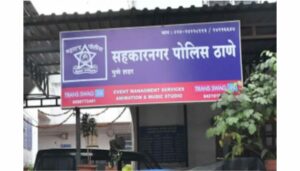Parliament Passes the Protection of Human Rights (Amendment) Bill, 2019 unanimously
The Rajya Sabha passed the Protection of Human Rights (Amendment) Bill, 2019 unanimously today after a fervent appeal from the Union Minister for Home Affairs, Shri Amit Shah.
Clarifying on the transparency of the selection process for the Chairperson and Members of the National Human Rights Commission (NHRC), Shri Amit Shah said that the selection committee was a diverse one, containing opposition leaders from both the houses in addition to the Prime Minister; Union Home Minister; Speaker, Lok Sabha and Deputy Chairperson, Rajya Sabha. A decision of such a vast and diverse committee should not be seen with distrust, said Shri Shah.
Union Minister of State for Home Affairs Shri Nityanand Rai said that the Amendment had been prepared based on the challenges faced in the last thirteen years, and will increase the efficiency of the Commission. He also said that the Modi Government is committed to the independence and autonomy of the Commission.
The Protection of Human Rights Act, 1993 was enacted to provide for the constitution of a National Human Rights Commission (NHRC), the State Human Rights Commission (SHRC) and the Human Rights Courts for protection of human rights.
The NHRC has proposed certain amendments to the Act to address the concerns raised at certain global platforms. Besides this, certain State Governments have also proposed for amendment of the Act, as they have been facing difficulties in finding suitable candidates to the post of Chairperson of the respective State Commissions owing to the existing eligibility criteria to the said post.
The Protection of Human Rights (Amendment) Bill, 2019, inter alia, provides
- that a person who has been a Judge of the Supreme Court is also made eligible to be appointed as Chairperson of the Commission in addition to the person who has been the Chief Justice of India;
- to increase the Members of the Commission from two to three of which, one shall be a woman;
- to include Chairperson of the National Commission for Backward Classes, Chairperson of the National Commission for Protection of Child Rights and the Chief Commissioner for Persons with Disabilities as deemed Members of the Commission;
- to reduce the term of the Chairperson and Members of the Commission and the State Commissions from five to three years and shall be eligible for re-appointment;
- to provide that a person who has been a Judge of a High Court is also made eligible to be appointed as Chairperson of the State Commission in addition to the person who has been the Chief Justice of the High Court; and,
- to confer upon State Commissions, the functions relating to human rights being discharged by the Union territories, other than the Union territory of Delhi, which will be dealt with by the Commission.








